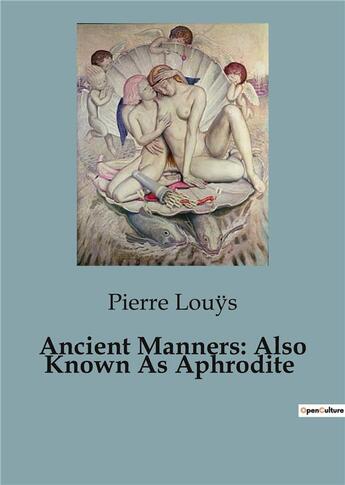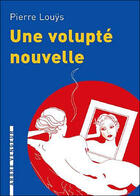-
Date de parution : 09/10/2023
-
Editeur :
Culturea
-
EAN : 9791041820573
-
Série :
(-)
-
Support :
Papier
Résumé:
Ancient Manners; Also Known As Aphrodite is a work of erotic literature set in ancient Greece. The novel explores themes of sensuality, desire, and forbidden love.
The story is presented as a series of fictional letters written by the character Chrysis, a courtesan and priestess of Aphrodite.... Voir plus
Ancient Manners; Also Known As Aphrodite is a work of erotic literature set in ancient Greece. The novel explores themes of sensuality, desire, and forbidden love.
The story is presented as a series of fictional letters written by the character Chrysis, a courtesan and priestess of Aphrodite. In her letters, Chrysis recounts her sensual experiences, her relationships with various lovers, and her observations on love, desire, and the complexities of human relationships.
Chrysis's narrative provides a glimpse into the world of ancient Greece, where love and beauty were highly celebrated, and the goddess Aphrodite was revered. The novel explores the intersection of religion, art, and eroticism in this historical context.
The book is known for its explicit and sensual content, which was considered scandalous at the time of its publication. It was initially published under a pseudonym due to its controversial nature.
Pierre Louÿs was associated with the French Decadent movement, which embraced themes of sensuality and aestheticism. Ancient Manners; Also Known As Aphrodite is a reflection of this artistic and literary movement, known for its exploration of taboo subjects and a fascination with the exotic.
The novel continues to be studied for its historical and literary significance, particularly in the context of French Decadent literature. It remains a notable work for its sensual and provocative content and its exploration of themes of desire and beauty.
Donner votre avis









